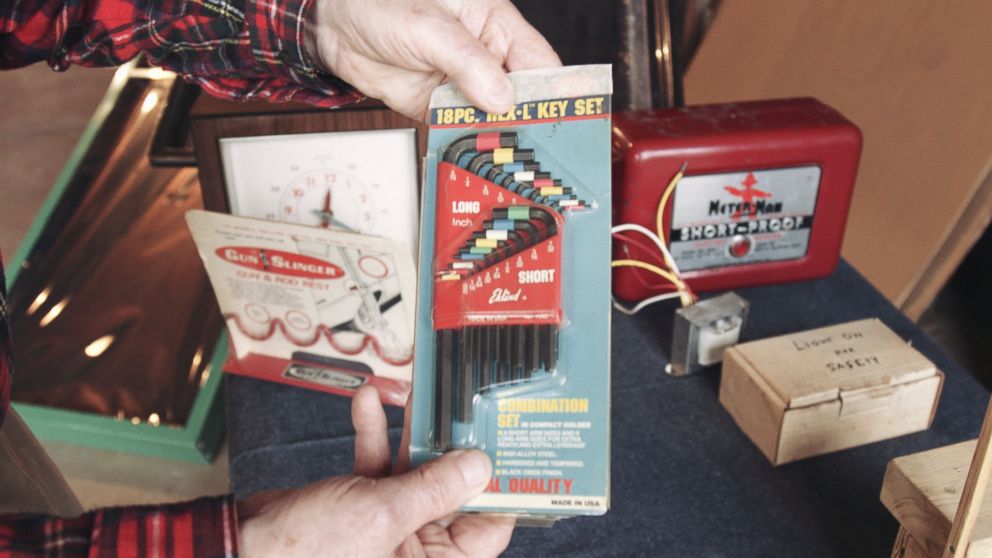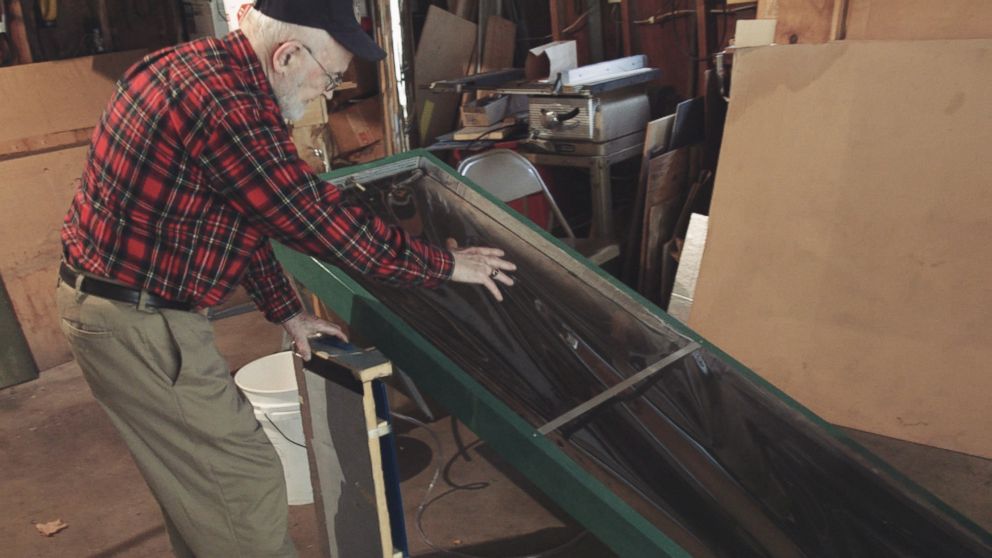Garage Geniuses: These 'Golden Inventors' Are Trying to Save the World
Robert Nepper and Bill Stevenson have created a water filtration device.
— -- Robert Nepper, 82, and Bill Stevenson, 91, are lifelong inventors who have spent most of their adult lives working as engineers for 3M, the maker of Post-it notes and Scotch tape. Now, each of them are spending their golden years working on inventions to help save the world.
“We're both getting very close to the last of our years,” Nepper said. “We're not trying to make a lot of money, we're just trying to do humanitarian work. That's what our efforts have been, mostly, for the last 10, 15 years.”
Both Nepper and Stevenson are lifelong Minnesotans whose passions for inventing stretch all the way back to childhood.
“I grew up in southeastern Minnesota, on a very small farm back in the hills,” Nepper said. “I've always wanted to build things. One thing I did, I built an alarm system from the barn to my bedroom. When my dad got down there milking cows, he'd ring it up and get us up, so we'd have to come down and help him milk the cows by hand. Only when I left did he get a milking machine. Anyway, that was my beginning interest in making things. I've enjoyed it all my life.
Stevenson said he always knew he wanted to be an inventor.
“One time I found a book on mechanical engineering in a friend's library, and I'm saying, ‘Oh my gosh.’ The pumps, and steam engines, and mechanisms, and all this great stuff, and I just thought, ‘That's what I want to be,'" he said. "I went to the University of Minnesota, and then when I graduated I got this job with the wonderful 3M company, which I was so excited for."
Even though both worked at 3M for decades, neither knew the other existed until after they were both retired.
“This mutual friend of ours, thought we were both so interested in inventions, that we should know each other,” Stevenson said. “He arranged for us to meet on the day that he got married. We met there for the first time and became friends ever since.”

They soon joined forces and started North Star Devices, inventing various gadgets including a giant tape dispenser to remove asbestos from walls, floors and ceilings; color-coded Allen wrenches; and a machine that makes WAPIS.
“A WAPI is a special thermometer for measuring the temperature of water high enough to where it was pasteurize-able, but not boiling,” Nepper said. “We've made over 100,000 of them for our little business. Not only that, we got no complaints.”
Nepper and Stevenson decided to scale up, creating a device that can easily pasteurize water in developing countries.

“I'm particularly interested in the third world, where the younger people are dying,” Stevenson said. “I feel that I'm capable of doing something about it, and willing to spend money and get it going. We've come up with what we think is a marvelous device that goes far beyond our expectation of not handling 10 families, not handling a hundred families, handling over a thousand people. Reasonably priced, and can do all of this.”
Using a combination of solar energy and propane, Nepper and Stevenson have created a water filtration device that is capable of producing over 3,000 gallons of pasteurized water per day.
“We can do enormous amount of drinking water because we operate at two-and-a-quarter gallons per minute,” Stevenson said. “When you multiply that out by 24 hours, it's enough for a small town or a large village in Africa.”
Nepper and Stevenson have already sent a few of their water pasteurization devices to Haiti and the Philippines, but are looking for help from larger organizations to get their invention out there on a much larger scale.
“If we could get in contact with the right organization that knows how to get things shipped to Africa, and has people there that are educated enough to run one of these devices, that makes a whole lot of difference in the world,” Stevenson said.
Nepper and Stevenson see this product helping people all over the world.
“What people have to understand, it's the kids that get sick,” Stevenson said. “Not so much the adults. Those kids drink muddy water. They're drinking water from the streets. It's awful. It bothers me so much, that's why I'm involved in it. It can be solved.”




